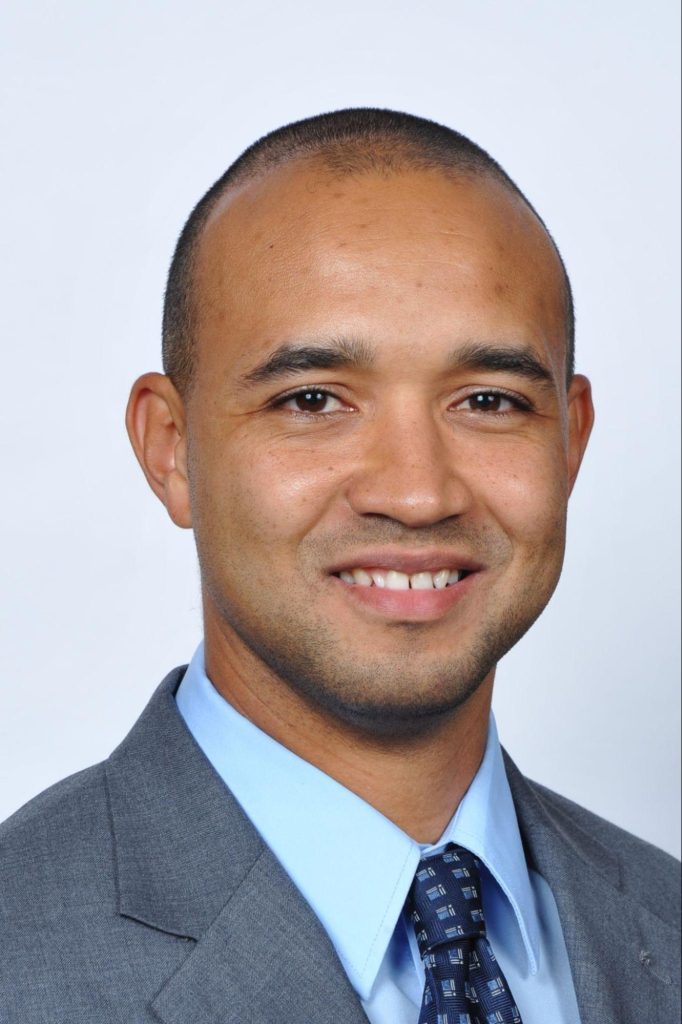Cape Sierra Capital Continues Strong Growth in 2021 And Provides Tips On Investing In Real Estate Syndications
Detroit, USA, 30 Sep 2021, ZEXPRWIRE “Cape Sierra Capital is off to a great start in 2021 and has closed on 200 units between Michigan (124 units) and Mississippi (76 units) so far this year. We are staying disciplined and paying attention to the fundamentals. It is easy to overpay in today’s real estate market but we have to realize certain returns for our investors,” said David Kamara, Founder of Cape Sierra Capital, a real estate investment company. Kamara and team continue to tour apartment communities and make offers. The latest acquisition closed at the end of June and things are going according to plan. “It is a numbers game. You have to see a lot of properties, perform numerous analyses, and submit many offers to get the right deal under contract” says Kamara.

As the world slowly emerges from the global pandemic, investors seeking high risk-adjusted returns are finally waking up to the undeniable strength of apartment or multifamily real estate investing. Many real estate sectors such as office space, hotels and retail got decimated during the past 18 months. Apartments, however, have seen demand surge. Multifamily construction has not kept up with the growing population and the precipitous rate of household formation. Some people hit hard during the pandemic have sold their homes and moved into apartments. Many others are finally leaving their parents’ basements to strive out on their own as vaccination rates across the country rise.
Many commercial real estate investments happen through a syndication. A syndication is simply the pooling of resources to accomplish a common goal. If you have been on a commercial airplane then you have been part of a syndication. Chances are you were not interested in paying for all the costs of operating that flight so you and all the passengers put your money together or “syndicated” a flight, with the help of the airline.
Real estate syndications typically involve a team of active real estate professionals called syndicators, operators or deal sponsors. This team typically brings together passive investors who do not want to learn the details of real estate investing. Many investors enjoy their current careers or love to spend their time doing other things. They understand that real estate offers diversification, strong returns, and a different risk profile from traditional stock investments. It is the job of the operator to research the market, find the deal, close the transaction, implement the business plan, and operate the asset until it is sold.

Recently, David Kamara, Founder of Cape Sierra Capital was asked what questions investors should ask a syndicator before joining their real estate investment offering.
- Do You Trust The Operator?
This is the most important question that you need to ask yourself. Do you feel that the operator will do the right thing for you when faced with a really difficult decision? Experienced professionals such as secret service agents and court judges get moral character wrong all the time. Ask the operator to tell you about those deals that didn’t go as planned. It is easy to do the right thing when everything is going well. Experience in down markets matters too. “Ask whether they were invested in the 2008 downturn and how they weathered that period. Ask what lessons were learned then that they apply today,” says David Kamara. - How Aligned Is The Operator With The Investor?
- The most obvious means by which an operator is aligned with the investor is the fact that if they do not deliver results or act immorally then there is little chance that they will stay in business. Look for operators that have been in business for a significant period of time. It takes a long time to build a reputation and only a few poor decisions to destroy it. David says, “Understand that just because a syndicator invests their own money in a deal does not mean that they are 100% aligned with you. It is certainly good that they invest their own cash but this does not guarantee a positive outcome.”
- Who Is Providing the Loan Guarantees?
- Most syndicated real estate loans use non-recourse debt. This means that even if things do not work passive investors are not liable and their personal assets cannot be used to fulfill the loan obligation. What you may not know is that banks still do require someone to guarantee that the investment will be managed in a conscientious manner, without fraud, misappropriation or environmental degradation. The operator has to make these guarantees typically backed by showing a total net worth greater than the loan amount. Should there be any illegal acts the principals who provide the above guarantee are indeed personally liable. It is important to understand who is providing these guarantees
- Who Is Paying the Up Front Costs?
- Before a deal gets presented to investors a lot of money has to change hands. Earnest money deposits, often to the tune of hundreds of thousands of dollars, have to be put in escrow. Lenders often require that their application processing fees and third party diligence costs be paid up front. All of these and significant legal fees typically are paid up front and are not recoverable should the deal not close. It is helpful to understand who pays for these costs and whether you may lose your capital should the deal not close.
- How Is The Investment Structured From a Legal Perspective?
- The majority of syndications are organized as a limited liability company (LLC) or a limited partnership. This structure enables easy distribution of profits to investors as income is not taxed at the entity level but flows through to the investors’ individual returns. The biggest disadvantage of real estate investments is that they are illiquid. Your capital will be tied up for a long time and you cannot readily easily exit the investment. Your rights as a limited partner and other specifics of the structure will be spelled out in the offering legal agreements. Make sure you understand what you are allowed and not allowed to do before you invest to avoid surprises and uncomfortable conversations at a later time. Do not skim through legal documents.
- What Are The Projected Returns To You After All The Fees Are Paid?
- Beyond the legal structure you need to understand how ownership equity is divided in the deal. You need to be clear about the percentage of the profits that you are entitled to on an annual basis as well as when the property is refinanced or sold. What are the various fees that the operator is charging? Typical syndications often involve some or all of the following fees: Asset Management Fee, Acquisition Fee, Disposition Fee, Construction Management Fee, etc. Are the property returns being projected calculated before fees or after fees? Make sure you understand how the cash waterfall flows and when it fills your buckets. It needs to work for you.
- What Are The Assumptions Used To Arrive At The Projected Returns?
- Every real estate investment will have two key components of the return: i). the cash on cash return which gets paid out annually and ii). the split of profits when the property is refinanced or sold. It is important to understand the assumptions associated with each of these components. Where the majority of the return comes from is a range that defines the personality of the deal.
- Why Does This Deal Make Money? What Makes This Particular Deal Unique?
Each investment opportunity has a story. Try to understand why the operator is particularly thrilled about this opportunity. What is the deal thesis and business plan? What needs to be true for the operator to be able to execute the plan. What dominos need to fall for this opportunity to deliver the returns that you are expecting? - What Is the Market Doing And Does It Support This Deal?
In real estate the market is very local. As a result there are many real estate markets. It is often a mistake to equate national headlines to what is going on in the town where your operator is about to tie up millions of dollars. Kamara further elaborates, “the key is to investigate further, examine the facts carefully about the big picture and your specific location, and then make your own conclusions. Also understand that markets are cyclical. They do not always go up. They do not go down forever either. The difficulty is understanding where in the market cycle you are. Nobody can predict the top or the bottom. Good operators plan for numerous market outcomes.”
Summary
In summary, there are many questions that you need to answer before you e-sign those legal documents, wire your money in, and join the ranks of passive real estate investors. You need to understand and be confident in the operator, the deal, and the market. David strongly recommends you vet them in that order. Find a trusted operator and they will bring you good deals in markets that will work. The operator or syndicator is the key to the puzzle.
Cape Sierra Capital focuses on providing investors with passive cash flow by investing in multifamily real estate. To learn more about how cash flow works and how you can gain back control of your time download a free copy of their e-book The Personal Cash Flow Formula. To hear about their upcoming investment opportunities join the Exclusive Investor Network.
Contact Details:
Company Name: Cape Sierra Capital
Contact Person: David Kamara
Email: [email protected]
Phone: (313) 288-8289
Country: USA
Website: https://capesierracapital.com/
The post Cape Sierra Capital Continues Strong Growth in 2021 And Provides Tips On Investing In Real Estate Syndications appeared first on Zex PR Wire.
Information contained on this page is provided by an independent third-party content provider. Binary News Network and this Site make no warranties or representations in connection therewith. If you are affiliated with this page and would like it removed please contact [email protected]
